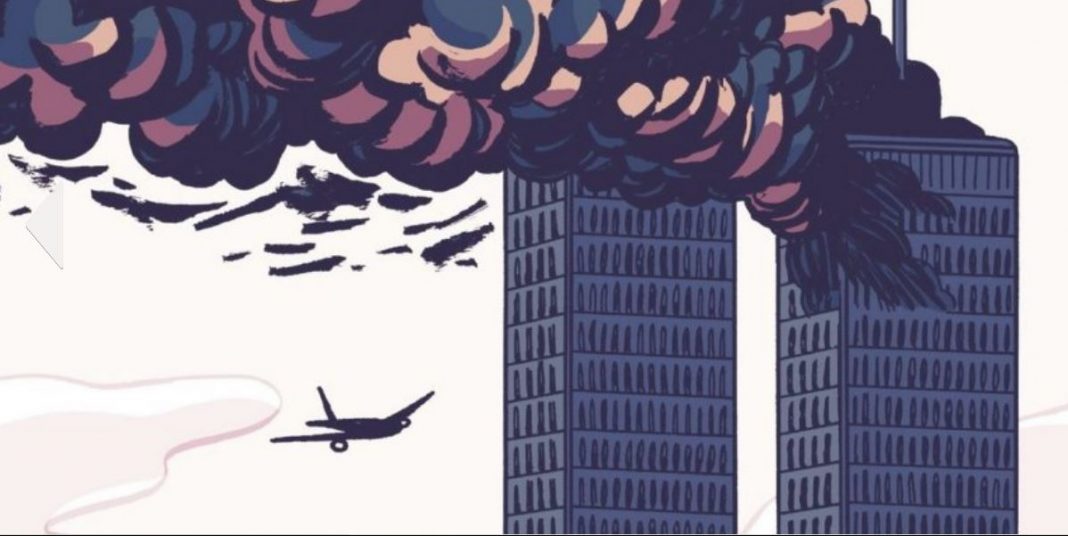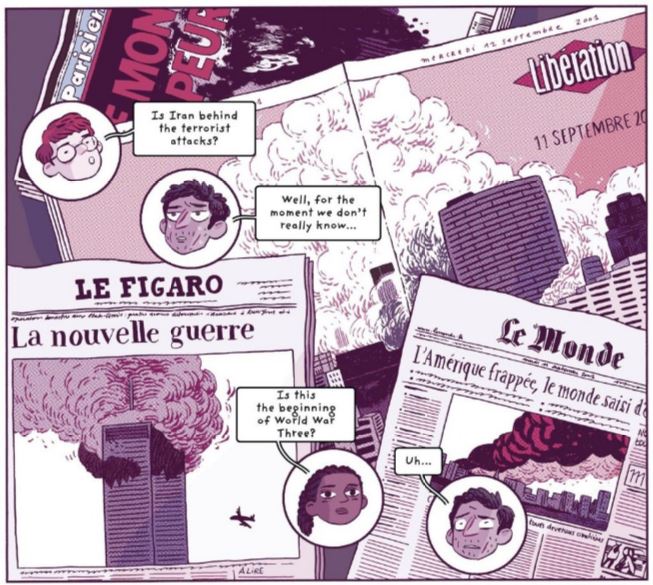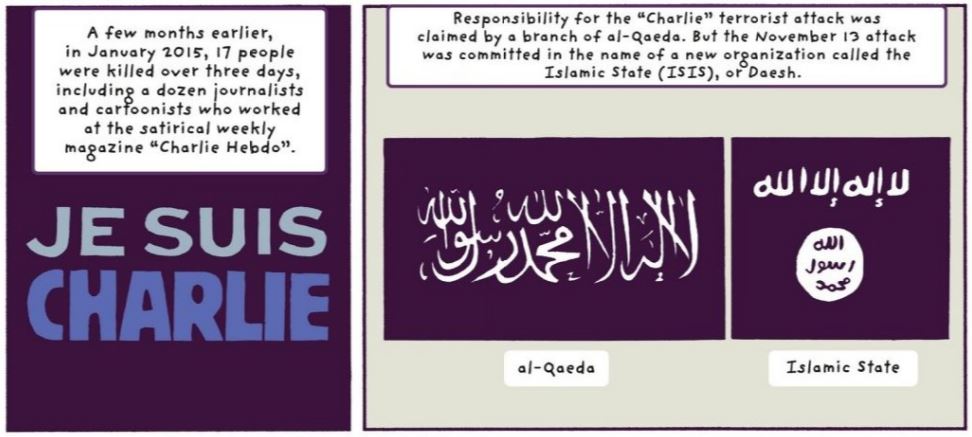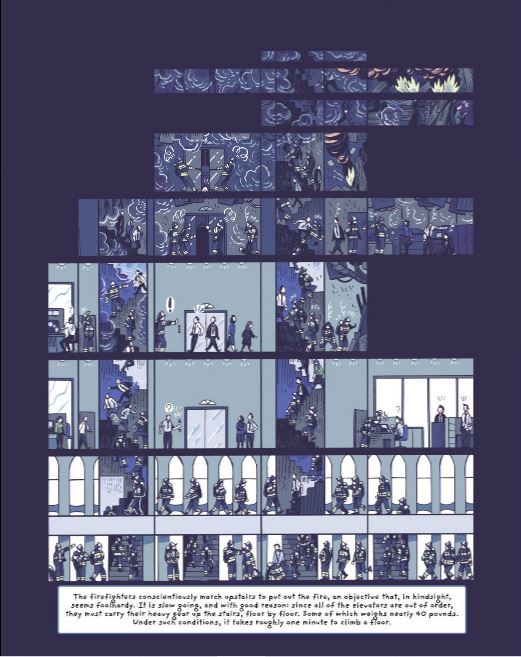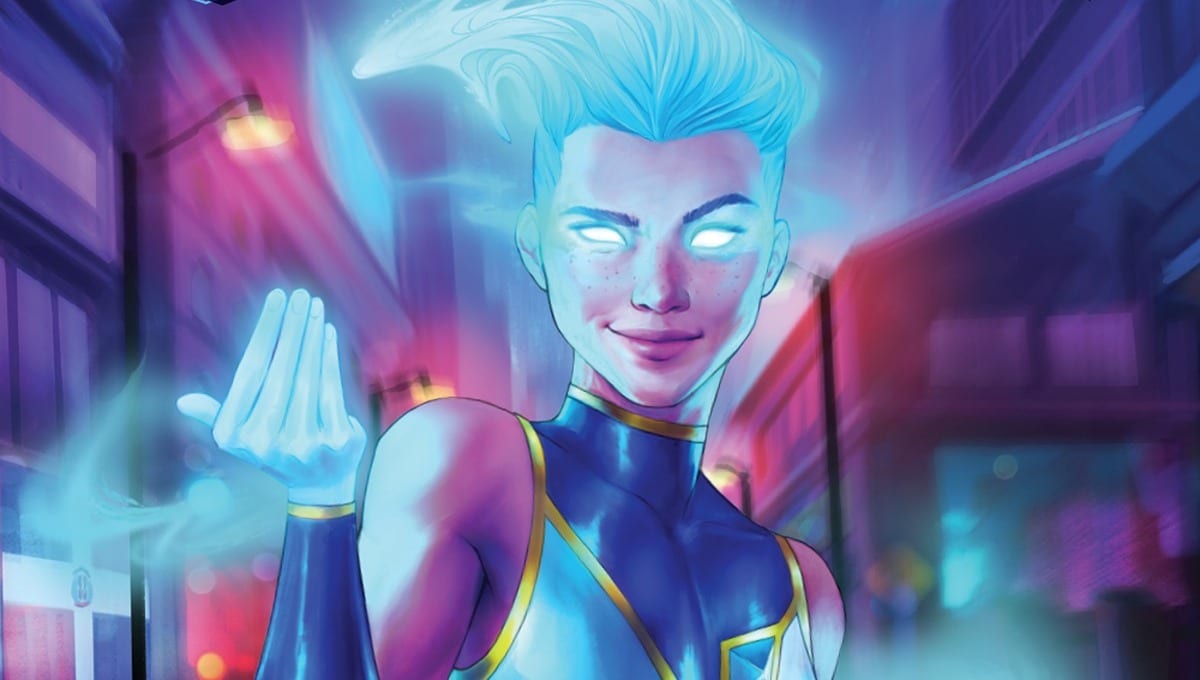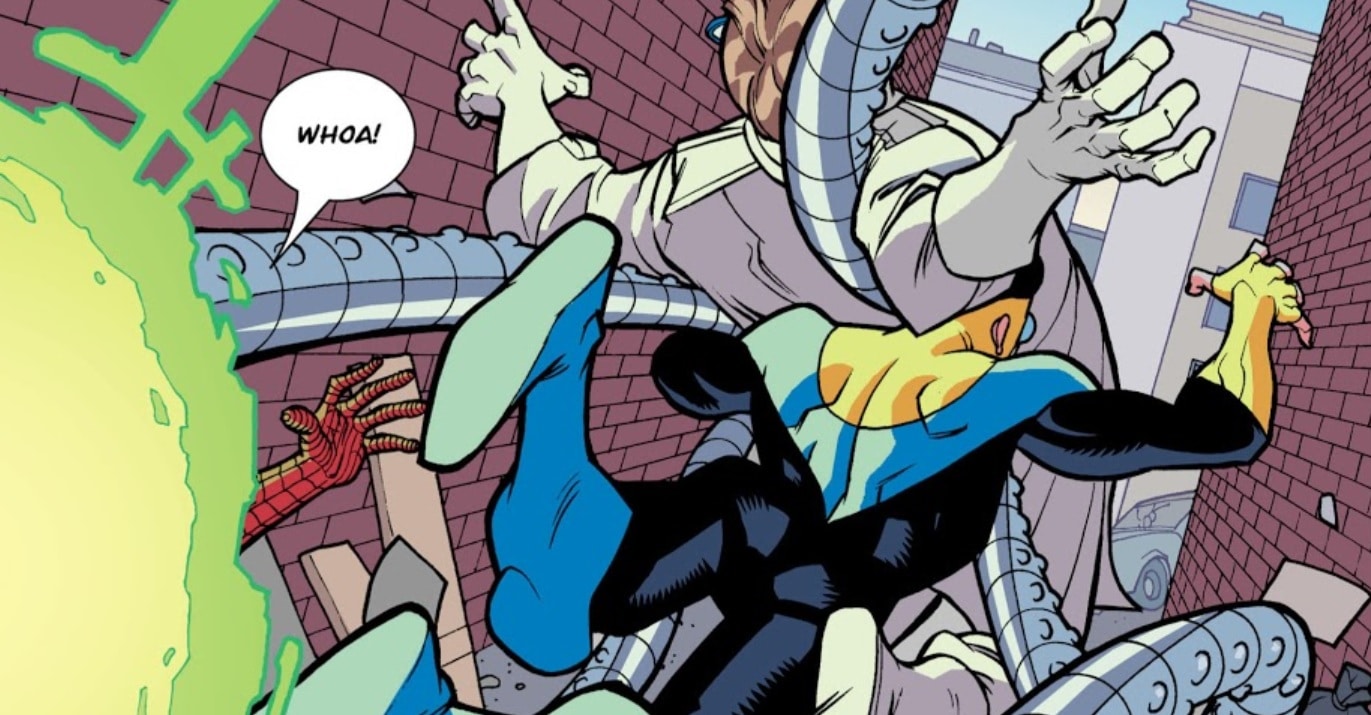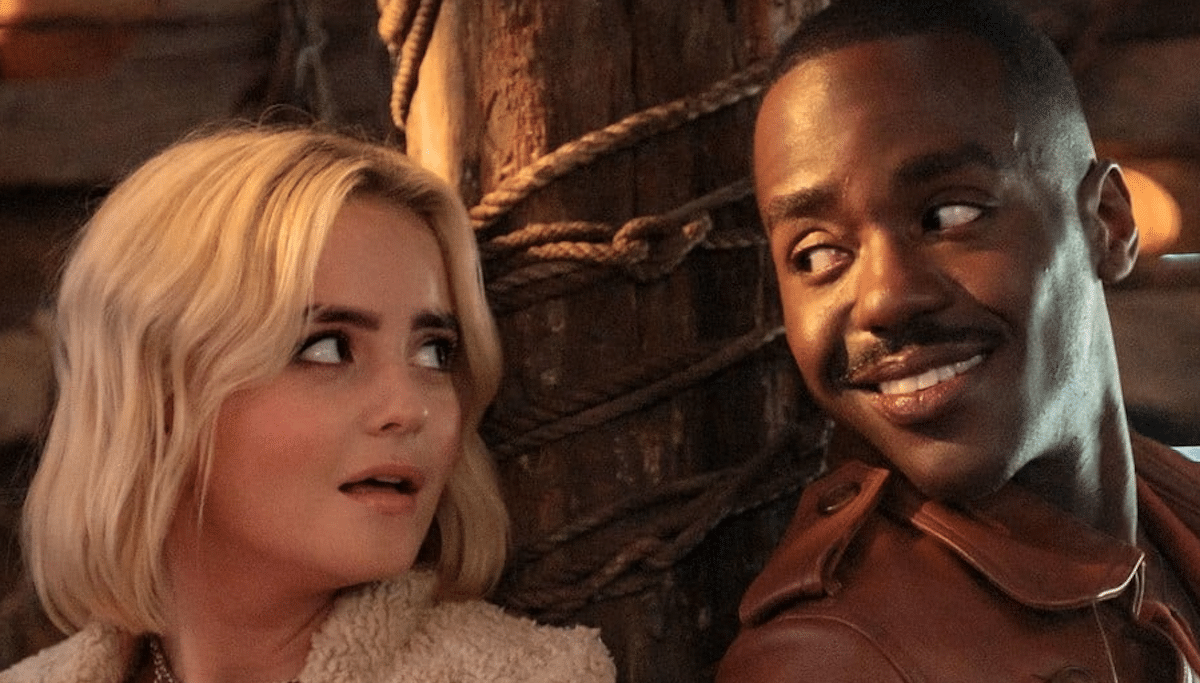
September 11, 2001: The Day the World Changed Forever
Script: Baptiste Bouthier
Art: Héloïse Chochois
Translation: Dan Christensen
Publisher: Europe Comics
Books have a knack for, more often than not, coming out at precisely the right time, especially when history decides to record an unexpected turn in world events. This is the case with Baptiste Bouthier and Héloise Chochois’ September 11, 2001: The Day the World Changed Forever, a twenty-year examination of the 9/11 terrorist attacks and how they shaped the world we are currently navigating, made even more relevant in the wake of America bringing its troops back home from Afghanistan.
September 11, 2001: The Day the World Changed Forever was released digitally in August of this year by Europe Comics, but it was originally published in French by Dargaud. The graphic novel is an interesting exercise in perspective. On the one hand, the book is clearly meant to work as an overview of the consequences brought upon by 9/11 with European readers in mind, or for people that did not live through the process directly as it unfolded in America. It’s a very informative and precise account of how one traumatic event can alter the course of history on a global scale.
On the other hand, The Day the World Changed Forever can give American readers a much needed outsider’s experience that brings the events into shared experience territory. It invites thought as the story does a good job of capturing the specificities of the French experience, focusing on how France also latched on to the concept of ‘National Security’ to install its own surveillance mechanisms.
What grounds the story in the French experience is Bouthier and Chochois’ decision to focus on a woman named Juliette who’s traveling to the United States for the first time in her life precisely twenty years after the attacks. This leads her to reflect on how the world has changed since, largely through narration.
What makes Juliette’s tale unique is her commentary on how the subsequent War on Terror, which the Bush administration pursued against extremist terrorist cells in the Middle East (a strategy that led the US into Afghanistan and then Iraq), affected all walks of life from a surveillance and vigilance point of view, especially within France’s national security alert system called Vigipirate (originally created in 1973).
Consequently, these very personal parts of the story are what’ll bring American readers to enter that different perspective exercise I alluded to earlier. There’s no substitute for first-hand experience, but The Day the World Changed Forever offers a very accessible window into how others lived through the post-9/11 world in another part of the globe.
What every reader will be able to appreciate, though, is Chochois’ cartoon art style and how it presents an alternate way of looking at this well-trodden history. The book is not, in any way, trying to capitalize on images of pain and horror. In fact, soft blues and light greys lead the way through each sequence. Chochois captures the bigger developments of the attacks themselves faithfully, but more as a respectful approximation of them rather than a painstakingly realistic version of them. It helps keep the story moving at a brisk pace, as the intent isn’t to dwell on trauma specifically but to untangle what the attacks themselves gave rise to.
Chochois also takes advantage of certain scenarios to experiment with page layouts to great effect, be it via organizing panels as different floors inside the World Trade Center towers or by taking some artistic license by incorporating symbols of surveillance and war throughout the story to help get the point across.
One other masterful contribution found in the book is its focus on individual stories from the day of the attacks. They range from WTC workers putting their lives on the line for fellow co-workers, to the story of Associated Press photographer Suzanne Plunkett as she attempted to document the fall of the Towers while also trying to survive them. Bouthier incorporates these stories into the script seamlessly, and they make for a more personal read when the book calls for it.
Regardless of perspective, and especially given the recent end of American intervention in Afghanistan, September 11, 2001: The Day the World Changed Forever is the kind of book everyone should be reading as the 20th anniversary of the event dawns upon us. It’s not easy reading, but necessary reading rarely is. Just remember to put yourself in others’ shoes to try an attempt a deeper understanding, regardless of where you’re from.
Published by Europe Comics, September 11, 2001: The Day the World Changed Forever is available digitally now.


